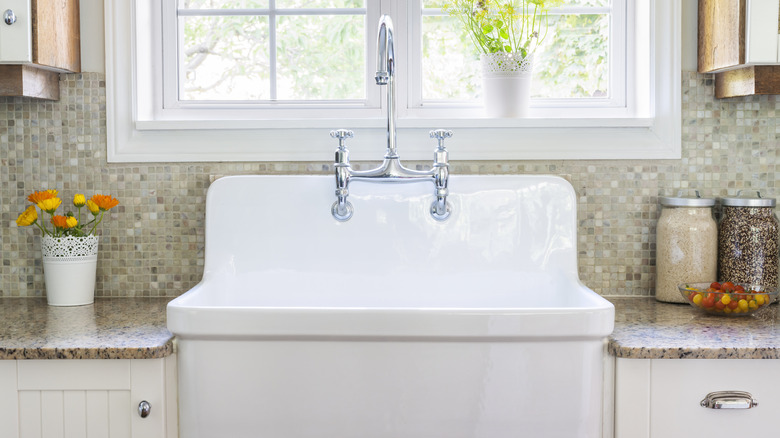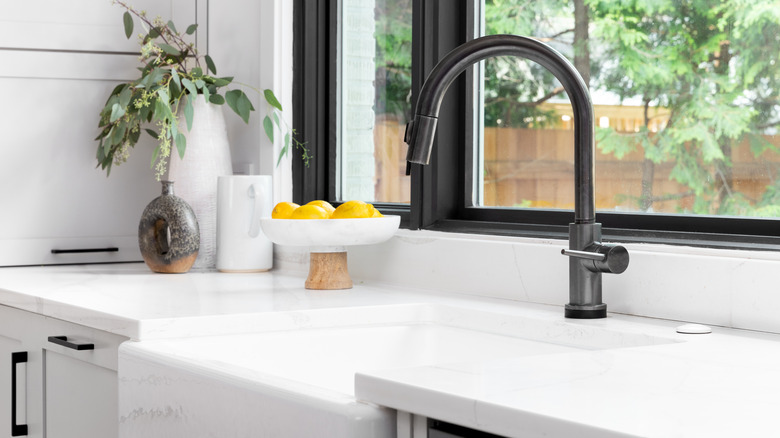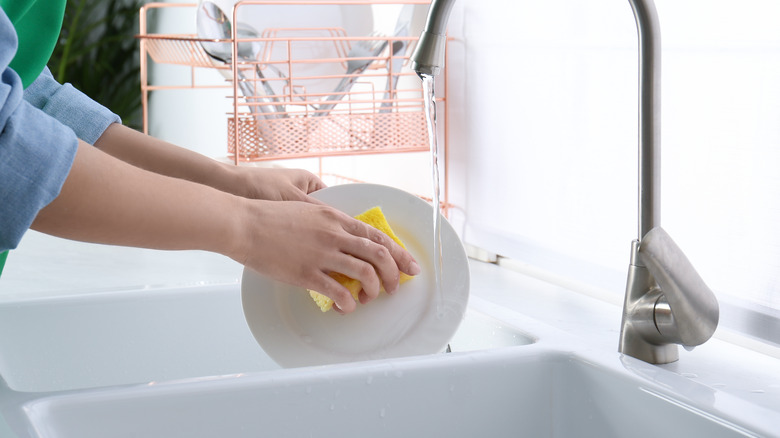The Benefits Of Installing A Porcelain Sink In The Kitchen
The kitchen is one of the most frequently visited spaces in a home, which makes the sink a key element of your entire house. So, if you're in the midst of a kitchen remodel and considering a new sink, you're probably looking for something durable with both visual appeal and minimal required maintenance. If so, a porcelain sink could be a good choice.
Sinks in this material are available with striking vein patterns and lines that can resemble expensive marble, but clean white porcelain is also very popular. No matter the style of your kitchen, a porcelain sink can add a brightening effect that's smooth, sleek, and clean. Your taste can determine the best sink colors for your home, with or without the marble-mimicking veins. Also, keeping a porcelain sink stunning requires minimal maintenance. Regular wiping with a rag, along with some other quick cleaning methods, will help keep the sink in beautiful shape for years.
Create a timeless design with porcelain
While we might associate the term "porcelain" with the porcelain dolls that were sought after children's toys during mid-1800s Europe, those dolls were notoriously delicate — this is not the case for porcelain sinks. Porcelain is made from dense clays that are fired at high temperatures, making it resistant to moisture, scratches, extreme heat and cold, and stains. While porcelain is durable, it's possible for it to chip or crack. Fortunately, that type of damage can be fixed with relative ease. Epoxy gap filler compounds usually do the trick, though hiring a professional will more likely ensure a perfect result.
Most major fixture companies sell some type of porcelain sink, and it's common to see them in a farmhouse style. To achieve the exact desired look, some designers refinish vintage porcelain, creating a classic appeal that's possible because of the material's durability — it can last up to 25 or 30 years before requiring a refinishing.
Porcelain is easy to keep clean
A relief to busy homeowners, most sinks made of porcelain are glazed, which makes them relatively easy to clean since they won't stain or retain sticky substances if properly maintained. However, there are some key tips for cleaning a porcelain sink to know. There are a few chemicals you'll need to avoid should you install a porcelain sink. Since these chemicals aren't the kind of stuff that's typical for a routine sink cleaning, you should be fine, but it's good to keep these potential pitfalls in mind, nonetheless. Any cleaners with strong acids can corrode or bleach the surface, leaving visible damage to your otherwise gorgeous sink. Use of pure chlorine bleach can take away the shininess and make a sink look dull and dirty, as well as damage colored porcelain. Avoid harsh scrubbing since it can scratch porcelain and dull the glaze.
Instead, to get the best result, you can use mild alkali cleaners like baking soda mixed with water. You may also get by with just dish soap and water, and, on a white sink, very minimal use of bleach or Comet cleaner to remove imperfections like visible scrapes from pans. For all these cleaning combinations, apply and scrub with microfiber cloth or a regular sponge. It's also a good idea to regularly wipe your sink down with a dry or damp rag.


